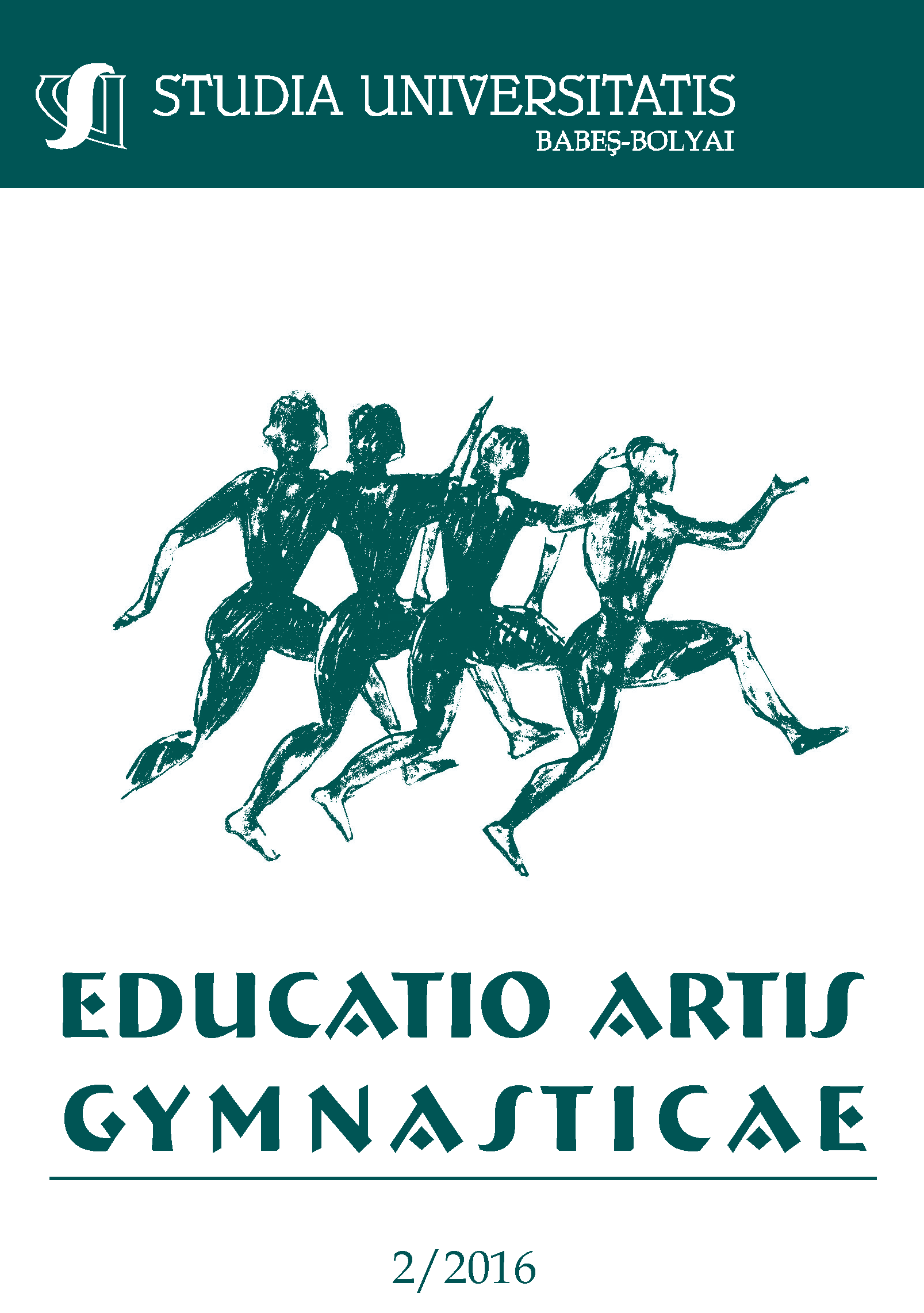SKILLS DEVELOPMENT IN CHILDREN WITH SPECIAL NEEDS THROUGH MOTION GAMES
Keywords:
motion games, skills, children with special needsAbstract
Introduction. The game has a decisive role in the social, emotional, thinking, psychological development, being used as a method of knowing their own body in relation to things surrounding it. The specific objectives of this study are identifying and selecting the games for the children with special needs and their application in order to develop skills. Material and methods. The research was carried out on a group of six students with special education needs, students of the School Centre for Inclusive Education, Cluj-Napoca and was conducted during the period February 2016- May 2016. In selecting the games, we took into consideration the following criteria: content of the games that include movement skills, the subjects’ physical capabilities of performing these games, the level of accessibility and comprehension. Results. Based on the support of motion games that were constantly performed, we could observe the improvement of hand skills for the six subjects of the study. Conclusion. In the study conducted on those six students, we are able to sustain the fact that most important and appropriate element, that in the same time has a remarkable impact in movement activities at children with special educational needs, is the game. As a conclusion of this study, we may safely state that motion games that have been adapted and applied were efficient in order to develop hand skills, students registering progress on several levels: sensory movement, social, creative, moral and even therapeutic, confirming the objectives of the study.
Dezvoltarea îndemânării la copiii cu nevoi speciale prin intermediul jocurilor de mişcare. Introducere. Jocul are un rol determinant în dezvoltarea individului în plan social, emoţional, psihic şi cognitiv, constituind o metodă de cunoaştere a propriului corp în raport cu lucrurile care îl înconjoară. Obiectivele specifice acestui studiu sunt: identificarea şi selectarea unor jocuri aplicabile la copii cu nevoi speciale şi aplicarea acestora în vederea dezvoltării îndemânării. Material şi metode. Cercetarea a fost realizată pe un grup de 6 elevi cu cerinţe educative speciale, elevi ai Centrului Şcolar pentru Educaţie Incluzivă, Cluj–Napoca şi s-a desfăşurat în perioada februarie 2016–mai 2016. În selectarea jocurilor am avut următoarele criterii referitoare la conţinutul jocurilor ce cuprind calităţile motrice respectiv îndemânarea, posibilităţile fizice ale subiecţilor de a le executa, accesibilitate şi comprehensiune la nivelul textului. Rezultate. Cu ajutorul jocurilor de mişcare care au fost aplicate constant în cadrul cercetării, s-a putut observa îmbunăţăţirea îndemânării celor şase subiecţi supuşi studiului. Concluzii. În urma studiului efectuat asupra celor şase elevi, putem să susţinem faptul că elementul cel mai adecvat, important şi care totodată are şi un impact remarcabil în desfăşurarea activităţilor motrice la copiii cu cerinţe educative speciale, îl constituie jocul. În urma acestui studiu, putem afirma că jocurile de mişcare adaptate şi aplicate au fost eficiente în scopul dezvoltării îndemânării, elevii înregistrând progrese pe mai multe planuri: senzoriomotor, social, creativ, moral şi chiar terapeutic, adeverind astfel obiectivele studiului.
Cuvinte-cheie: jocuri de mişcare, îndemânare, copii cu nevoi speciale
References
Cârstea, Ghe. (2000). Teoria şi metodica educaţiei fizice şi sportului pentru examenele de deinitivat şi gradul didactic II. Bucureşti: Ed. AN-DA
Hanţiu, I. (2002). Jocuri de mişcare”. Bucureşti: Editura Media Sind
Macra-Oşorhean, M.-D., Ciocoi-Pop, D. –R., & Petruş, R.-C. (2011). The Importance of Games in the Development of the Disabled Children’s Psychomotricity. The 6th international conference- Perspective in the Science of Human Movement. Cluj-Napoca: Ed. Risporint.pp.174-180.
Macra-Oşorhean, M.-D., Simon-Ugron, Á, & Illés, L. (2014). Applied Movement Games for Children with Special Educational Requirements. STUDIA UBB EDUCATIO ARTIS GYMN, LIX, 3, pp.53-67.
Marolicaru, M., Boroş-Balint, I., & Macra-Oşorhean, M. (2011). Educaţia fizică în şcolile speciael. Ed.a II-a, revizuită şi adăugită. Cluj-Napoca: Risoprint, pp.34-35.
Downloads
Published
How to Cite
Issue
Section
License
Copyright (c) 2016 Studia Universitatis Babeș-Bolyai Educatio Artis Gymnasticae

This work is licensed under a Creative Commons Attribution-NonCommercial-NoDerivatives 4.0 International License.






